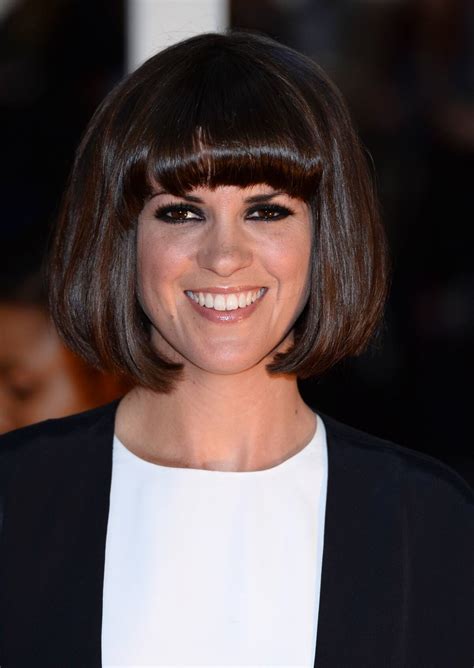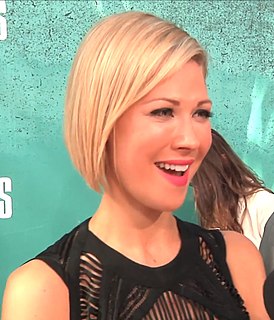A Quote by Dawn O'Porter
We exist in a media that's obsessed with feminism, but as soon as there's an opportunity to bring down a woman at the top, we'll do it.
Related Quotes
It's actually technically impossible for a woman to argue against feminism. Without feminism, you wouldn't be allowed to have a debate on a woman's place in society. You'd be too busy giving birth on the kitchen floor, biting down on a wooden spoon so as not to disturb the men's card game, before going back to hoeing the rutabaga field.
Something I say a lot when it comes to anti-feminist stereotypes is that they exist for a reason. The stereotypes of feminists as ugly, or man-haters, or hairy, or whatever it is - that's really strategic. That's a really smart way to keep young women away from feminism, is to kind of put out this idea that all feminists hate men, or all feminists are ugly; and that they really come from a place of fear. If feminism wasn't powerful, if feminism wasn't influential, people wouldn't spend so much time putting it down.
What are the top 20 universities in the world that do good materials research that might create carbon fibers to do jet stream kites or new magnets that will allow [energy] generation to be done up there and you just bring the electricity down. You either have to bring down rotational energy, which is hard, or you have to have the generator up there and bring down the electricity. Well, putting the generator up there is hard to do because it's too heavy.
Social media is something of a double-edged sword. At its best, social media offers unprecedented opportunities for marginalized people to speak and bring much needed attention to the issues they face. At its worst, social media also offers 'everyone' an unprecedented opportunity to share in collective outrage without reflection.
Part of the failure of the corporate media is that they don't dig out stories anymore. They are looking down from the top floors. Media work used to be something that was down on the ground level. Now they are looking out of the windows in the top suites, and they don't know what's going on out there. And then there are the corporate owners who don't want this stuff reported because if one town learns that the next town has defeated Wal-Mart or stopped sweatshop goods, then other towns are going to want to do the same thing.
Social media is important, but it does not bring down governments. Governments can shut down the Internet. Governments can control media access. If they do what the Tunisians did and try and negotiate with the opposition, then the media's still open, the international community can learn what's happening in the country, and then that can provide inspiration. But in mid-2009, the Iranian regime just shut down the Internet. Facebook went dark. Twitter went dark. BBC Persian, Voice of America, Persian News Network all went dark. That was it.






































